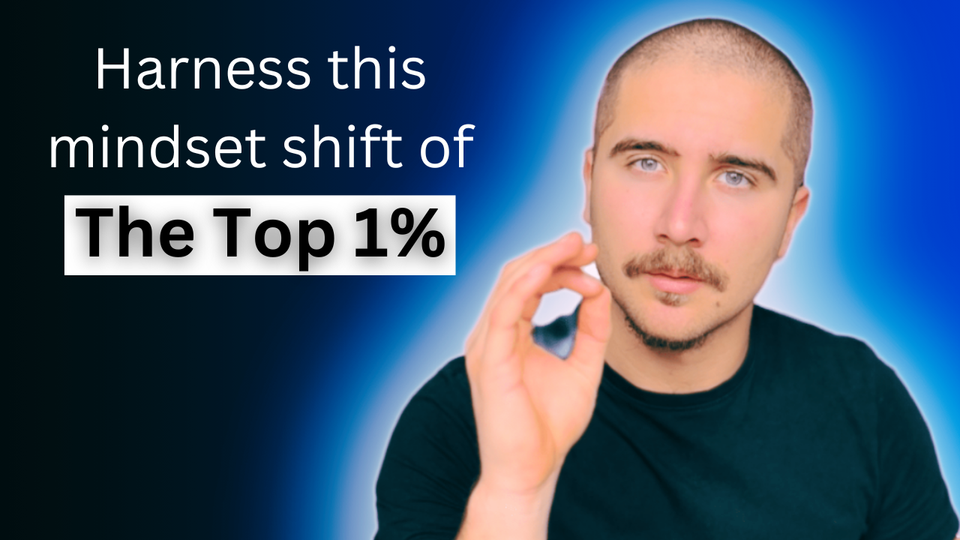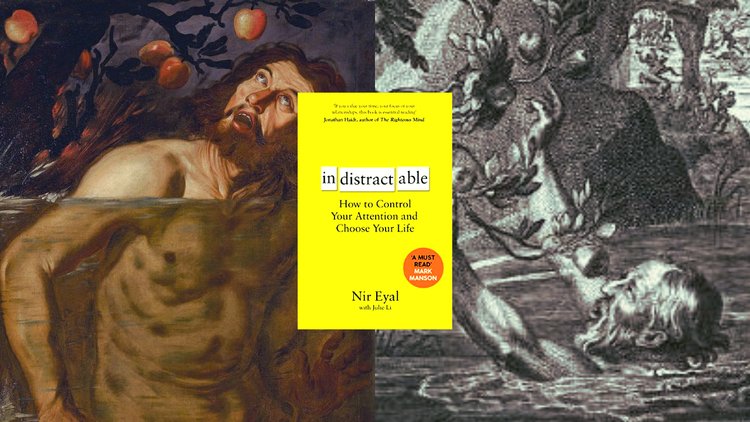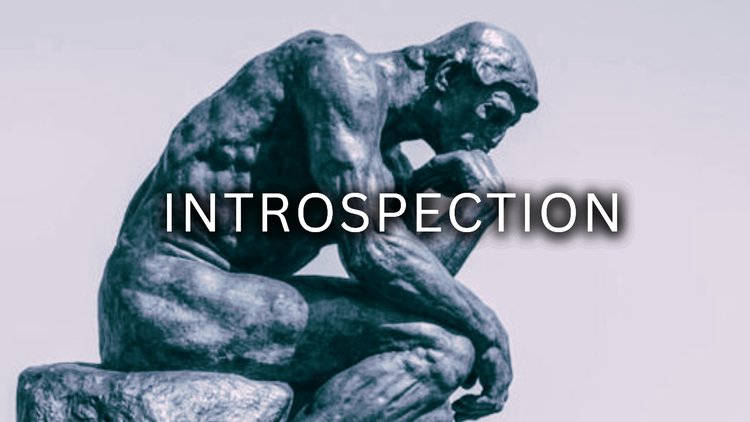You’re Not Lost (Harness This Mindset Shift of The Top 1%)

Since adulthood, we’ve been conditioned to avoid failure.
We’ve been taught failure means low status and ostracism from the group.
On social media people hide their failures and flaunt their successes to beguile their audience into a state of awe for their achievements.
But the inescapable essence of life is failure. Trial and error.
Running water must pursue multiple avenues until it finds the stream of best economy.
Children will mutter gibberish until they can articulate clear words.
Discovering your purpose in life also involves failure.
But it is easier to convince yourself you are lost than to admit you’re willingly failing your way to your inner most purpose.
Intro:
When you say you’re lost in life what do you actually mean?
You mean something along the lines of “I can’t see anything in front of me worth pursuing nor do I have any hope I’ll find a meaningful direction to take.”
Essentially you have no worthy goal ahead of you which can dictate your actions in the present moment.
So you begin to question the utility of your actions and begin to feel despair.
Evolutionarily, what does the emotion of despair signal?
Something isn’t working. Effort is being wasted. A new course of action needs to be taken.
But the thing is, how do you know what course of action to take? Especially when you’re deliberating over a multiplicity of options to take or none at all.
The remedy for solving 80% of this issue is opening your mind to the nature of how purpose actually works in life. And the last 20% involves reframing your relationship with failure.
- “Be wary of those that put a clear path in front of you. In a world where the masses flock toward the promise of a certain future, a wise decision is to embrace the uncertain nature of life itself and create your own certainty through focus.”
- Dan Koe
How purpose works:
So how does purpose actually work?
Purpose exists like an onion.
Before we can live our deepest purpose we must first shed the many layers of our lesser purposes.
To illustrate, our lives flow in the nature of seasons. What you wanted last summer will likely change by this winter. What you want 2 summers from now will likely be different from what you want today.
But don’t worry. This isn’t a broken system needlessly toiling us from one futile action to the other. It’s the necessary process of preparing ourselves for the day we encounter the one thing we can’t not do. The thing we’re willing to change everything else for. Our core purpose.
So, understanding this process you can already see the biggest obstacle here… Uncertainty.
To swim with the stream of this process rather than ignoring it or lamenting it, you must be able to live through each lesser purpose until they become purposeless and then be able to enter a period of unknowingness as to what you will do next with your life.
The paradox here is that to dive inward you must solve superficial problems outward. Once those problems are solved, you are both closer to the authenticity of your core while increasing the value you can provide to the external world.”
- Dan Koe
This period of unknowingness could be days, weeks, months or years. And it’s during this period you’ll convince yourself you’re lost.
But you’re not lost. You’re on the path of opening to your next purpose but the feeling of being in disorder is the price we pay for not being all-knowing and being able to predict the future with pinpoint accuracy.
- "The self conscious brain, like the self conscious heart, is a disorder, and manifests itself in the acute feeling of separation between I and my experience. The brain can only assume its proper behaviour when consciousness is doing what it is designed for: not writhing and whirling to get out of present experience, but being effortlessly aware of it." -
- Alan Watts
Most people trade purpose for security:
Because uncertainty is the most dangerous thing the mind faces, it’s understandable why most people opt out of living a life of purpose and instead form an addiction to a monthly pay check.
I get it.
If you get an average job, you don’t have to think on your feet and grapple with the discomfort of creating a life of meaning, which takes time, thought, responsibility and a lot of failure and uncertainty.
But this is precisely why average people live average lives devoid of meaning.
“Don’t follow what most people do because you don’t want the results that most people get. The average person is obese, likely to be divorced and has less than 1k in the bank. It feels safe to do what everyone else is doing, but its actually a terrible decision.”
- Shan Puri
Most people, men in particular, don’t live lives of purpose so they cheat their partner out of an authentic man who is living close to his edge and serving an inner calling bigger than himself. A purpose he can’t not put above all his relationships in life.
You must out-fail your previous self:
Perhaps you’ve been told this before but you’ve never realised it fully.
Take a moment to reflect back on all the biggest periods of growth in your life.
What happened before the growth? What was your state of mind like?
More often than not you’ll find you felt somewhat lost before this change occurred.
I’ve certainly noticed this trend throughout my life. I felt depressed, lost and uncertain every time before I made huge changes in my life.
So what does this tell us?
For growth to occur, there must be something to grow from.
You cannot improve your language skills without realising the defects in your speech.
You cannot harness the desire to build muscle without the feeling of weakness.
You cannot discover what you want without first coming across what you think you want but realise you don’t want.
Going through a period of feeling lost isn’t fun. No one would wake up and force it upon themselves.
Because it involves overwhelming thoughts, questions of your self-worth, grieving over plans you once had or desires you previously cultivated, and perhaps most difficult, it involves steering clear from the judgements of others to remain steadfast in wanting to live your truth.
I said “wanting to live your truth” purposefully over “living your truth” because they are two different things. I did this to highlight the nature of the seasons of life. To live your truth is to be it. To want to live your truth is swallowing the pill of acceptance that you need to figure out what your truth is before you can live it.
We clarify what we are by revealing what we are not:
At the heart of everything you desire is freedom. The freedom of bliss, the freedom of doing what you really want and of living your deepest truth.
So what you want is who you are, but you cannot tell you who are without first shedding the karma of the desires which currently occupy your mind.
In Tibetan buddhism this process is called non-affirming negation.
“For when we negate what we aren’t, we transcend and free ourselves from it - without offering an alternative of what we are.”
You are a trap set to catch yourself. And your deepest truth is the one thing which remains untouched and unchangeable throughout life. It is continuously seeking you but you busy your mind and muddy the path of its entry. So it’s your responsibility for whether it finds you or not.
When you hear the quote “most men live lives of quiet desperation” what do you think it means? It means there are countless people cut off from their source and are actively negating the flow of their truth, just like you’d block the water flow of a hose by bending the wire.
Excessive scrolling. Incessant occupation with work. Watching TV. Continuously distracting yourself are all ways to block the flow of your truth.
Life is a non-ending process of thinking you’ve sussed it out until you feel you’ve arrived back at square 1 again. In life there is nothing to gain, only everything to let go off so that your deepest truth can be lived.
So each lesser purpose is not a fruitless waste of time. They are the necessary preparations you need in order to live your deepest purpose.
Perhaps you’re in your late twenties and are feeling disgruntled. But you have an overwhelming desire to travel the world. So you actualise this desire and travel until you’re 35 but realise you still don’t feel connected. Then you decide it’s time to get down to your deepest truth of full time meditation.
But in order to have realised this, you needed to go through the 35 years of chasing lower desires and shedding their hold on you.
The failure reframe:
So the last 20% of the remedy, after the 80% of understanding how your purpose works, is reframing.
There are only two languages I’ve learned throughout my life, and by the way I compare this topic to language learning because they’re both incredibly similar, Polish and Spanish.
But I only speak one language fairly fluently and the other I hardly speak at all.
Polish was the first language I learned whilst living in Poland but I speak Spanish much more fluently despite never living in a Spanish speaking country.
The reason why isn’t because Spanish is easier to learn than Polish, it’s simply because of framing.
When I was 20 and learning Polish to impress my ex-girlfriend’s family I framed every failure as a chip-away at my self-worth. So I avoided speaking and only practiced for 6 months. I would literally be so nervous to say even simple things to people in Polish, even though I could, because I didn’t want to mess up.
But after learning from this experience, I started learning Spanish and decided if I wasn’t sounding like a caveman and feeling uncomfortable 60% of the time, I wasn’t progressing.
In order to rise you need to fall first. This is exactly what Nassim Taleb means by building anti-fragility.
So, it sounds simple, but you can only be lost if you tell yourself you’re lost.
Or, even if you truly are lost, you can only feel negative pangs from this state in your mind if you’ve decided being lost is a bad thing.
Because the mind is a programming tool and your life is literally a product of what you pay attention to and what you tell yourself. That’s what self-love and self-esteem are, the messages you tell yourself that your brain believes.
The mind operates best in pursuit of a goal.
You programme the value of a goal based on the positive neurochemical and emotional sensations you conjure when you envision the goal.
The mind then forms a hierarchy of pursuits where it dictates certain goals are more important than others. This then determines your thoughts, obsessions and actions.
So to harness the failure reframe, you must perceive failure as more important than success. Counter-intuitively this will bring you more success long-term because you’ll accustom yourself to overwhelm and depth of practice, but when success comes you won’t know how to handle it because you’ll have programmed your mind to seek failure in order to progress.
This isn’t a problem. This is what you want to happen.
You want to pursue progress over results because if you’re progressing, in any endeavour, the success will chase you instead of you chasing it. It might take years to happen, but I can promise you, if you frame your mind towards prioritising failure you will get the success you want.
It will become a matter of when, not if.
Summary:
So, in summary:
- You are not lost, you’re shedding the layers of your purpose to get to its core
- To realise what you want you must first realise and let go of what you don’t want
- Reframe failure from bad to a inescapable marker of growth and prioritise it more than success
Give yourself permission to feel lost.
And then learn whatever the state of disorientation is trying to teach you.




